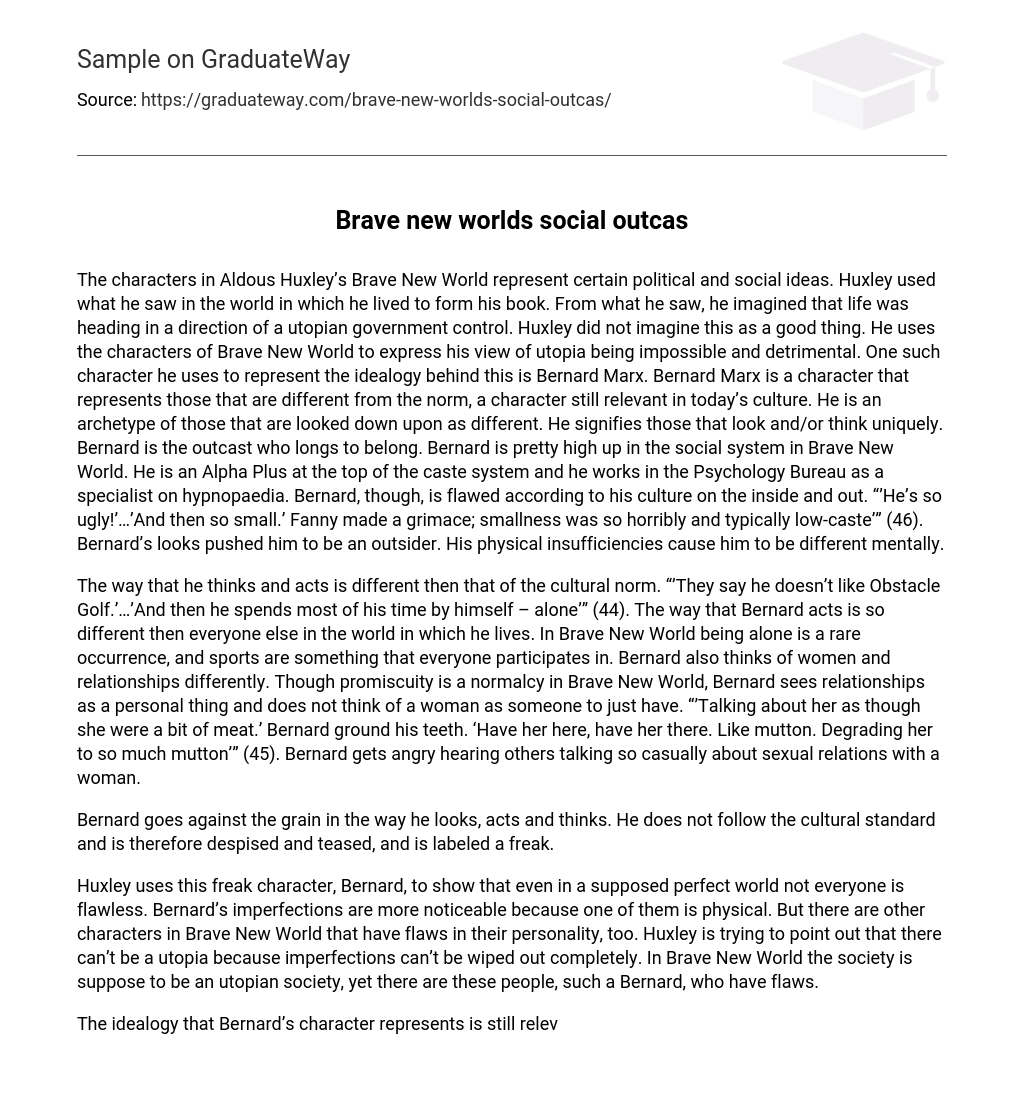Aldous Huxley’s Brave New World depicts characters that symbolize specific political and social ideas within the portrayed society. Huxley drew inspiration from his own observations of the world during the book’s writing, envisioning a future where government control creates a utopian society. However, he did not view this development positively. Through characters such as Bernard Marx, Huxley conveys his belief in the impossibility of achieving utopia and its potential negative consequences. Bernard represents individuals who deviate from societal norms, a figure still relevant in today’s culture. Despite holding a high position as an Alpha Plus and working as a hypnopaedia specialist in the Psychology Bureau, Bernard is considered flawed both externally and internally according to society’s standards. His physical shortcomings result in him being an outcast, contributing to his divergent mentality.
The way Bernard thinks and acts diverges from the cultural norm in Brave New World. According to the text, “They say he doesn’t like Obstacle Golf” and “then he spends most of his time by himself – alone” (44). Bernard’s behavior stands out in the world he lives in, where being alone is uncommon and participation in sports is expected from everyone. Moreover, Bernard’s perception of women and relationships differs from others. While promiscuity is a societal norm, Bernard views relationships as personal connections rather than just a means to satisfy physical desires. He expresses his frustration when others talk casually about women, stating, “Talking about her as though she were a bit of meat. Have her here, have her there. Like mutton. Degrading her to so much mutton” (45).
Bernard deviates from societal norms in his appearance, behavior, and mindset, resulting in him being both despised and ridiculed, leading to him being labeled as a freak.
Huxley employs the use of Bernard, a peculiar character, to demonstrate that not all individuals are flawless in a supposedly ideal world. Bernard’s physical imperfections make his flaws more apparent, but other characters in Brave New World also possess flaws in their personality. Huxley aims to highlight that a utopia cannot exist as imperfections cannot be entirely eradicated. Although Brave New World presents a society striving for utopia, individuals such as Bernard exhibit imperfections.
The ideology that Bernard’s character represents remains relevant in today’s imperfect culture. In fact, Bernard embodies the majority of individuals in contemporary society. Nobody is flawless physically or mentally. Everyone possesses some kind of imperfection. Not everyone shares the same mindset; each person has their own thoughts and ideas. Nevertheless, everyone desires to feel a sense of belonging. Another trait of Bernard that resonates in today’s world is the pursuit of acceptance. People yearn to be liked and to fit in, just as Bernard aspires to. Throughout his life, he has felt disrespected and diminished. When John enters the scene, it presents Bernard with an immediate opportunity for recognition. Even after losing this chance, Bernard still strains to find his place. “’Send me to an island?’…’You can’t send me to an island. I haven’t done anything’” (232). Bernard refuses to be isolated from the world he has relentlessly sought acceptance from.
In the novel Brave New World, Bernard Marx is portrayed as a social outcast who does not conform to society’s standards. Aldous Huxley uses Bernard’s flaws to convey the idea that utopia is impossible to achieve, while also enabling readers to empathize with the imperfect nature of humanity.





